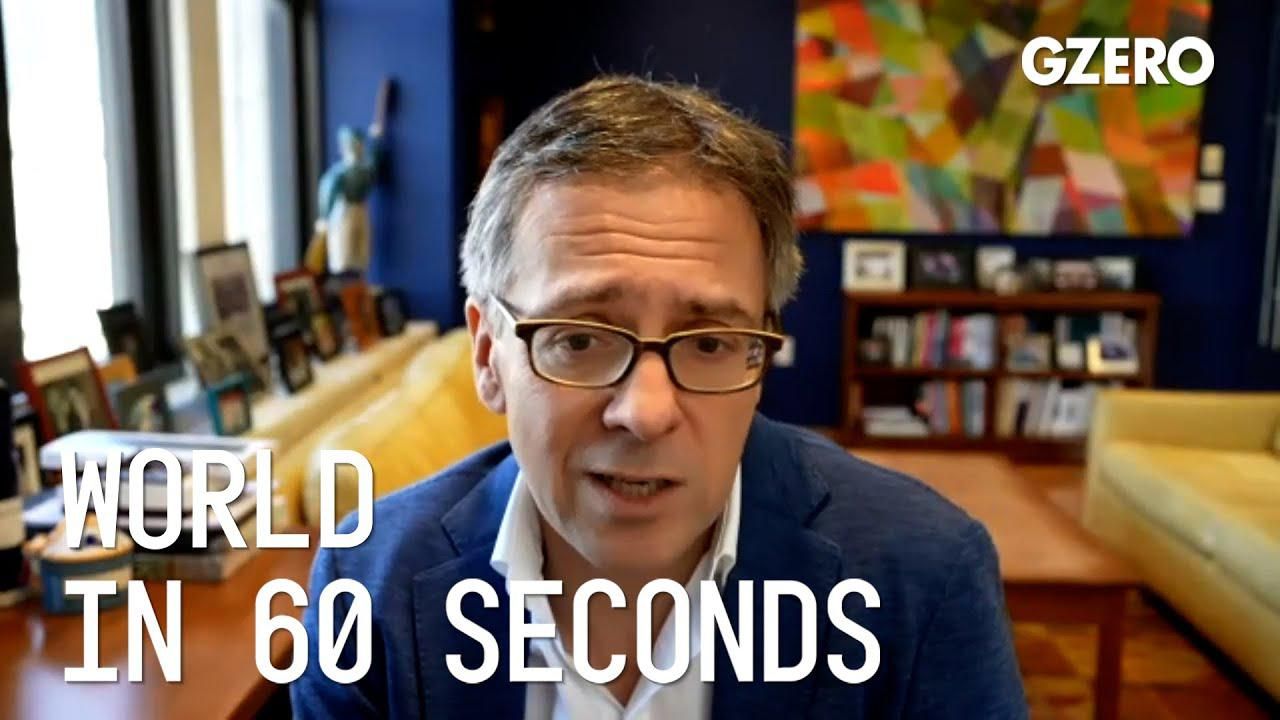
What are the ramifications of the US ban on Russian oil imports? Are there any surprises on Russia's released list of unfriendly countries? Also, is President Xi facing a hard wartime choice for China? Ian Bremmer shares his insights on global politics this week on World In :60.
First of all, what are the ramifications of the US ban on Russian oil imports?
A couple of things. First of all, the United States doesn't really get much oil at all from Russia. Oil product is a different story. Interesting to see where exactly that lands but it's definitely a significant message from the United States. Last week, the Americans weren't planning on that but given a lot of domestic pressure, including from Congress, the Biden administration decided to move on it. One problem I see is that this was not well coordinated with the Europeans, almost every other message so far in response to the Russian invasion of Ukraine has been incredibly strong coordination between the Americans and the NATO allies. That is not the case here. And I think that is a challenge. The Europeans are not going to be willing or able to go nearly as far as the Americans because they have a hell of a lot more to lose and that potentially makes the NATO alliance look a little bit weaker on this issue. They're going to need to communicate well on it.
Are there any surprises on Russia's released list of unfriendly countries?
Well, surprise is just how many of them there are, frankly. I mean this is dozens of countries that are involved in sanctions, involved in providing military support for Ukraine and the Russians consider all those unfriendly, of course, Ukraine on the list too. I mean a little surprised to see countries like Monaco and Switzerland on that list because historically neutral and the Russians do an awful lot of business there. I will say that I think a lot more needs to be done in terms of the oligarchs, about half of their wealth is held outside of Russia. And it's not just the UK. It's also places like Cyprus. We've seen very, very little movement to actually squeeze and freeze a lot of those assets. They could be doing a lot more. It's an area that I'm going to be watching closely over the coming days.
Also, is President Xi facing a hard wartime choice for China?
Not in his view. In his view, I mean he's got Chinese media that are actually embedded with Russian soldiers fighting on the ground in Ukraine, strict censorship regime, nothing pro-Ukrainian, nothing anti-Russian in terms of the war on the ground in China. The Chinese strategically are aligned very much with the Russians here and not with the United States and the West. Now they want to portray themselves as being more neutral, being more constructive. You can still do business with the Chinese but the reality is, and they still, they very much would like to see a negotiated settlement to this conflict. They don't want a second Cold War, but to the extent that the fighting is continuing, it's very clear which side of the battle that they are actually on. And this is a problem ongoing for the Americans and the Europeans. Very interesting to see Xi Jinping talk to both Macron and Scholz in the past hours to say, "Hey, we'd like to be involved in any diplomatic settlement." I'm certain that would've been prepped with Putin in advance of Xi Jinping making that announcement.